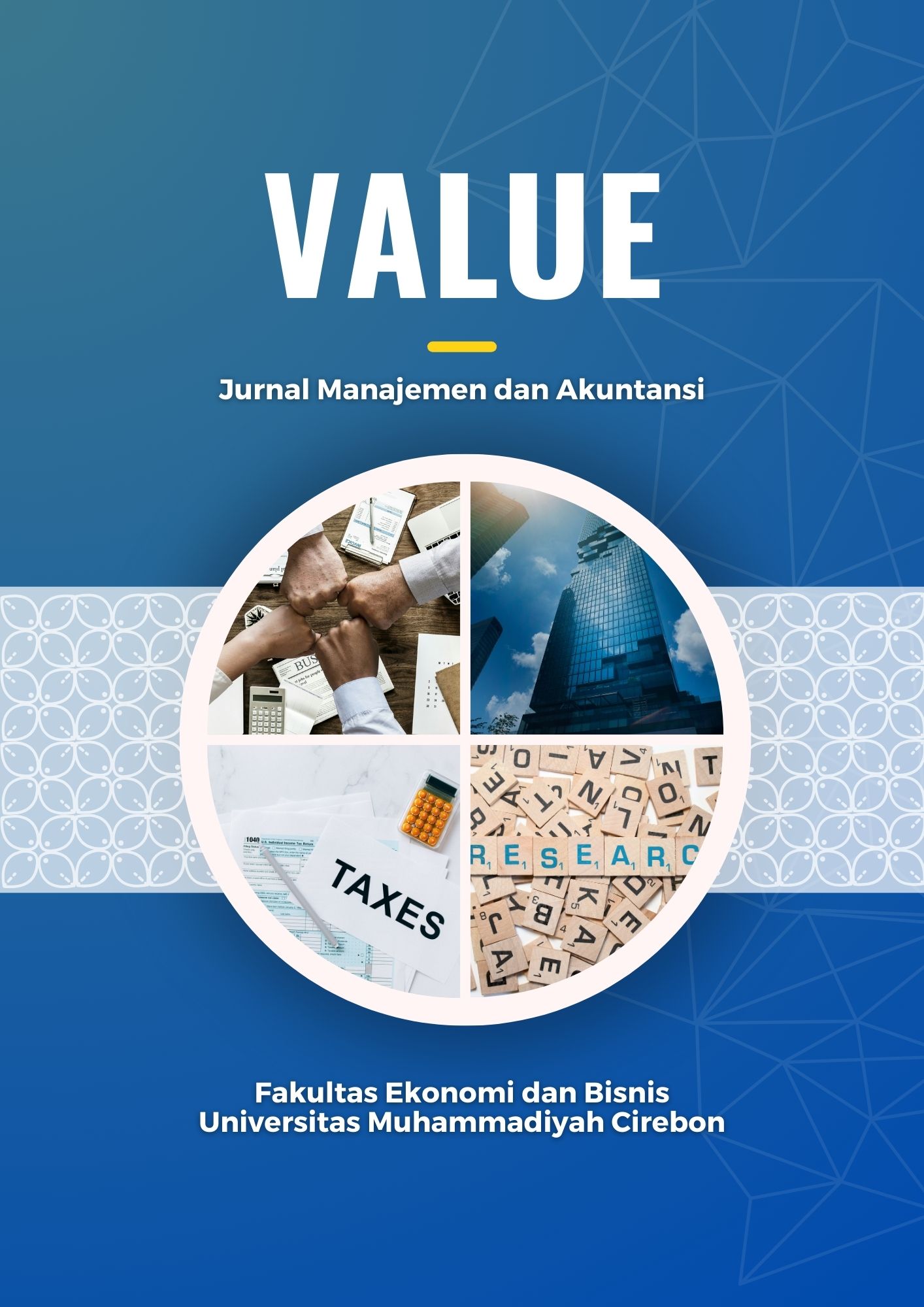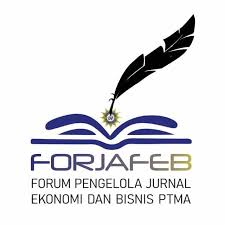Pariwisata Lombok, Masihkah Halal?
DOI:
https://doi.org/10.32534/jv.v20i1.6861Keywords:
Business Perspective, Halal Tourism, Locality, Lombok, SustainabilityAbstract
The concept of halal tourism in Lombok faces challenges of multiple interpretations of definitions and diverse terminology and increasingly massive tourism development, which has an impact on implementation inconsistencies and destination competitiveness. This study investigates the perceptions of tourism businesses regarding the understanding and application of the halal concept in the local context and its relevance to the sustainability of halal tourism in Lombok. This research uses a qualitative design with an exploratory case study approach based on the local principle of ngayo. Data collection was carried out through direct observation, in-depth interviews and focus group discussions involving business actors and tourism stakeholders. The data obtained were then transcribed and analyzed using the content analysis method. This research illustrates that the development of halal tourism in Lombok destinations is driven by strong ethical capital and a high commitment to sustainability from local businesses. The integration of both creates locality-based services that are unique, distinctive and authentic as the embodiment of the halal concept. Local resource management integrated with the values of morality, religiosity and sustainability is a dimension that needs to be considered in creating a competitive advantage. It also highlights the religiosity and locality of the community can strengthen the commitment of business development in the halal tourism sector.
References
Adnani, L., Jusuf, E., Alamsyah, K., & Jamaludin, M. (2023). The Role of Innovation and Information Sharing in Supply Chain Management and Business Performance af Halal Product in Tourism Destination. Uncertain Supply Chain Management 1(11): 195-202. http://doi.org/10.5267/j.uscm.2022.10.007
Afifi, M., & Latifah, S. (2017). Social Capital Revitalization of the Sasaq Community in Lombok, Indonesia trhroug Learning Organization. Suvannabhumi 9(1): 173-192. https://www.researchgate.net/publication/31852872
Ahyani, H., Slamet, M., & Tobroni. (2021). Building the Values of Rahmatan Lil ‘Alamin for Indonesian Economic Development at 4.0 Era from the Perspective of Philosophy and Islamic Economic Law. Al-Ihkam: Jurnal Hukum dan Pranata Sosial 1(16): 111-136. http://doi.org/10.19105/al-lhkam.v16i1.4550
Basmatan, A. 2017. Marketing of Halal Tourism Based On Local Wisdom and Uniqueness. International Halal Tourism Congress-Turkey.
Battour, M. (2018). Muslim Travel Behavior in Halal Tourism. Mobilities, Tourism and Travel Behavior - Contexts and Boundaries. http://dx.doi.org/10.5772/intechopen.70370
Battour, M., & Ismail, M.N., (2015). Halal Tourism: Concepts, Practices, Challanges and Future. Tourism Management Perspectives 19: 150–154. http://doi.org/10.1016/j.tmp.2015.12.008
Duman, T. 2012. The Value Of Islamic Tourism : Perspectives From The Turkish Experience. Islam And Civilisational Renewal : 718. https://doi.org/10.52282/icr.v3i4.513
Dogan, M. (2011). Turkiye deislamiturizmingelisimi 2002-2009 in political economy, crises and development, Istanbul:IJOPEC Publication, 471-487.
Feriyadin, Saufi, A., & Rinuastuti, B.H. (2021). Pengembangan Pariwisata Halal Desa Setanggor. Jurnal Master Manajemen 10(1a): 1-12 http://dx.doi.org/10.29303/jmm.v10i1A.628
Freeman, R.E., Dmytriyev, S.D., & Phillips, R.A. (2021). Stakholder Theory and the Resource-Based View of the Firm. Journal of Management, 47(7): 1757-1770 http://doi.org/10.1177/0149206321993576
Gabdrakhmanov, N.K., Biktunirov, N.M., Rozhko, M.V., and Mardanshina, R.M. 2016. Features Of Islamic Tourism. Academy of Marketing Studies Journal, Volume 20, Special Issue 1 : 45-50. Retrieved from https://www.researchgate.net/profile/Niyaz-Gabdrakhmanov/publication/311260212_Features_of_islamic_tourism/links/587626ba08ae6eb871cf328c/Features-of-islamic-tourism.pdf
Gibson, C.B., Gibson, S.C., & Webster. (2021). Journal of Management, 47(7): 1878-1898 http://doi.org/10.1177/0149206320987289
Global Muslim Travel Index. (2019). Global Muslim Travel Index 2019. Retrieved from https://www.google.com/url?sa=t&source=web&rct=j&opi=89978449&url=https://www.crescentrating.com/reports/global-muslim-travel-index-2019.html&ved=2ahUKEwjC5cW_-L2LAxUvSmwGHZq4AeYQFnoECBYQAQ&usg=AOvVaw3NiPHvrjlsIFg-TClqLdyB
Global Muslim Travel Index. (2024). Global Muslim Travel Index 2024. Mastercard and Halal Trip. Singapore. Retrieved from https://www.google.com/url?sa=t&source=web&rct=j&opi=89978449&url=https://www.crescentrating.com/reports/global-muslim-travel-index-2024.html&ved=2ahUKEwiJnbDU-r2LAxX9SGcHHTpkM90QFnoECBUQAQ&usg=AOvVaw2u8CqdBt76h6BTI44etiU4
Henderson, J. C. (2010). Sharia-compliant hotels. Tourism and Hospitality research, 10(3), 246-254. https://doi.org/10.1057/thr.2010.3
Husen, T.I, & Zhafira, N.H. (2019) Positioning Pariwisata Syariah Studi Kasus Pada Hotel Sofyan Syariah. Jurnal Bisnis dan Kajian Strategi Manajemen 3(1). ISSN: 2614-2147. https://doi.org/10.35308/jbkan.v3i1.1372
Hutagalung, A. F. N (2019). Pro kontra Wisata Halal, bagaimana sebaiknya?. Retrieved from https://www.brilio.net/creator/pro-kontra-wisata-halal-bagaimana-sebaiknya-e37829.html
Jaelani, A. (2017). Halal Tourism Industry in Indonesia: Potential and Prospects. International Review of Management and Marketing, 7 (3): 25-34. ISSN: 2146-4405. Retrieved from https://dergipark.org.tr/en/pub/irmm/issue/32110/355956
Jafari, J., & Scott, N. (2014). Muslim world and its tourisms. Annals of Tourism Research, 44, 1-19. https://doi.org/10.1016/j.annals.2013.08.011
Jayadi, S., Demartono, A., & Kartono, D. T. (2017). Interaksi Sosial Umat Hindu dan Muslim dalam Upacara Keagamaan dan Tradisi Perang Topat di Lombok. Jurnal Analisa Sosiologi, 6(2), 54-63. Retrieved from https://www.academia.edu/download/97271359/18466-39914-1-PB.pdf
Kanom. 2015. Strategi Pengembangan Kuta Lombok Sebagai Destinasi Pariwisata Berkelanjutan. JUMPA 1 (2): 25-42.
Miles, M.B., Huberman, A.M., & Saldana, J. (2014). Qualitative Data Analysis. Edition 3. SAGE Publications, Inc.
Miller, G. J., & Yang, kaifeng (Eds.). (2008). Handbook of Research Methods in Public Administration (2nd ed.). CRC Press. https://doi.org/10.1201/9781420013276
Papastathopoulos, A. (2022). Which Hotel Services Really Matter to Muslim Travelers? Developing and Validating a Multidimensional-Continuum Scale. International Journal of Hospitality Management, 102 https://doi.org/10.1016/j.ijhm.2022.103145
Pratama, A.A., Busaini, & Saufi, A. (2020). Content Analysis in Determining the Sustainability Potential of Lombok Tourism Industry. IJMMU 7(8):216-227. http://dx.doi.org/10.18415/ijmmu.v7i8.1845
Qardhawi, M.Y. (2017). Halal Wal Haram Fil Islam. Terjemahan: Mu’ammal Hamidy. Halal dan Haram dalam Islam. PT BINA ILMU. Surabaya.
Saufi, A. (2013) Understanding Host Community’s Experiences in Establishing and Developing Small Tourism Enterprises in Lombok, Indonesia. Thesis Type (PhD Doctorate). Griffith Business School. http://hdl.handle.net/10072/366754
Saufi, A. (2017). Locals’ Participationand Halal Tourism Lombok, Indonesia. World Tourism Organization (UNWTO) and Griffith University.
Saufi, A., dkk. (2020). Pariwisata Halal: Perlukah Rekonseptualisasi? Jurnal Magister Manajemen. 9(3). http://dx.doi.org/10.29303/jmm.v9i3.580
Sharpley, R. 2000. Tourism and Sustainable Development: Exploring the Theoretical Divide. Journal of Sustainable Tourism 8 (1). https://doi.org/10.1080/09669580008667346
Sofyan, R. 2012. Prospek Bisnis Pariwisata Syariah. Republika. Jakarta
Subarkah, A.R., (2018). Potensi dan Prospek Wisata Dalam dalam Meningkatkan Ekonomi Daerah (Studi Kasus: Nusa Tenggara Barat). Jurnal Sospol 4(2): 49-72. https://doi.org/10.22219/sospol.v4i2.5979
Suhartanto, D., Gan, C., Andrianto, T., Ismail., & Wibisono, N. (2021). Tourism Management Perspectives https://doi.org/10.1016/j.tmp.2021.100884
Sulhaini., Saufi, A., & Rusdan. (2017). Developing Halal Tourist Destination: Investigating Lombok’s Potentials from Destination Marketing Perspective. Balancing Development and Sustainability in Tourism Destinations: 67-78, http://doi.org/10.1007/978-981-10-1718-6_8
Suyatman, U., Ruminda, & Yatmikasari, I. (2018). Pulau Lombok: Pengembangan Pariwisata Halal dalam Bingkai Kearifan Lokal. Pusat Penelitian dan Penerbitan UIN SGD Bandung. Bandung.
Ulya, B.N., Sulhaini, & Rinuastuti, B.H. (2020). Pengaruh Nilai yang Dirasakan Muslimah Muda terhadap Keputusan Berkunjung di Destinasi Halal pulau Lombok, 9(4a): 1-14 http://dx.doi.org/10.29303/jmm.v9i4a.614
Utami, S.M. 2017. Keterlibatan Masyarakat Lokal Dalam Pengembangan Potensi Wisata Di Kabupaten Semarang. Forum Ilmu Sosial (FIS), Volume 40 Nomor 1, Hal : 84-96. https://doi.org/10.15294/fis.v40i1.5501
Zolfani, S.H., Sedaghat, M., Maknoon, R., and Zavodskas, E.K. 2015. Sustainable tourism: a comprehensive literature review on frameworks and applications. Economic Research-Ekonomska Istraž ivanja. 28 (1) : 1 –30, http://dx.doi.org/10.1080/1331677X.2014.995895
Zuhdi, M.H. (2018). Kearifan Lokal Suku Sasak Sebagai Model Pengelolaan Konflik di Masyarakat Lombok. Mabasan, volume 12, nomor 1, hal. 64-85. https://doi.org/10.62107/mab.v12i1.34


















